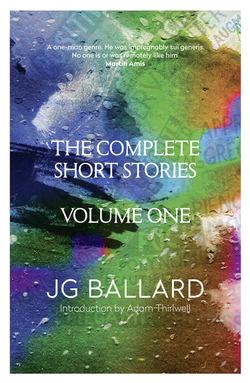Читать книгу The Complete Short Stories: Volume 1 - Adam Thirlwell - Страница 7
2
ОглавлениеInterviewed by George MacBeth in 1967, Ballard tried to define the difference between his fiction and that of his contemporaries. ‘The great bulk of fiction still being written,’ he observed, ‘is retrospective in character. It’s concerned with the origins of experience, behaviour, development of character over a great span of years. It interprets the present in terms of the past, and it uses a narrative technique, by and large the linear narrative, in which events are shown in more-or-less chronological sequence, which is suited to it.’ Whereas, he then continued: ‘when one turns to the present – and what I feel I’ve done in these pieces of mine is to rediscover the present for myself – I feel that one needs a non-linear technique, simply because our lives today are not conducted in linear terms. They are much more quantified; a stream of random events is taking place.’
It has a charming grandeur, this giant theory, but I’m not sure it’s precisely right. Or at least, it may be right, but it’s only a tentative sketch. The diligent reader also needs to consider some sober literary history.
For these stories in no way follow one dominant strand of the short story: the realist ironic tradition of Chekhov and Maupassant. Instead, these are stories of the high imaginary, and fantastical. The best short stories, Ballard once noted, were those of ‘Borges, Ray Bradbury and Edgar Allen Poe’. And his own stories, similarly, feature universes stretched beyond their normal limits. But to name this tradition is not quite a solution, either. Italo Calvino once wrote an essay on fantastic literature, and he offered the following definition of its underlying philosophy:
The problem of the reality of what we see – both extraordinary things, which may be just hallucinations projected by our mind, and ordinary things, which perhaps conceal beneath the most banal appearances a second nature that is more disturbing, mysterious, terrifying – is the essence of this literature of the fantastic, whose most powerful effects lie in this hovering between irreconcilable levels of reality.
And at once, the diligent reader has a problem. Maybe for Edgar Allen Poe, sure, this might be a workable definition. But it in no way helps when considering Ballard’s inventions.
At which point, this ideal reader should maybe pause: and consider a particular example.
